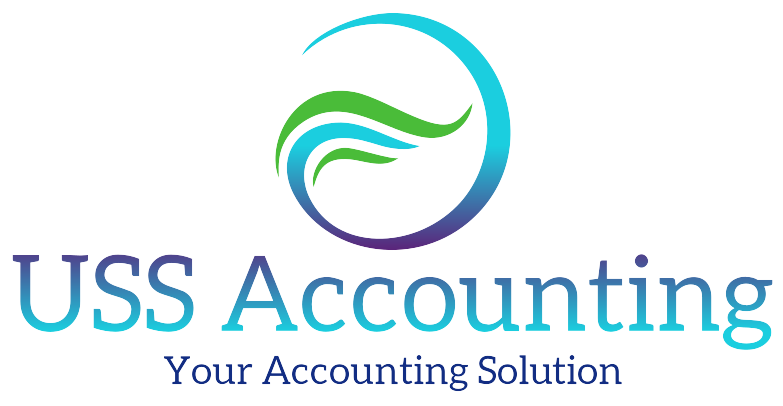
What Are the Essential Bookkeeping Basics Every Small Business Needs?
Direct Answer: The seven essential bookkeeping basics are: separating business and personal finances, tracking all income and expenses daily, reconciling bank accounts monthly, organizing receipts and documentation, understanding key financial statements, maintaining consistent categorization, and preparing for tax obligations year-round.
According to the Small Business Administration, poor financial management is one of the leading causes of small business failure. The problem isn’t usually lack of revenue—it’s lack of visibility into where that revenue goes.
Bookkeeping isn’t just about compliance or tax preparation. It’s your business intelligence system. When done correctly, it tells you which products are profitable, which clients cost more than they’re worth, when to hire, and how to plan for growth.
Let’s break down the seven bookkeeping basics that transform record-keeping from a chore into a competitive advantage for small businesses across Atlanta, Charlotte, and Greenville-Spartanburg.
Why Must You Separate Business and Personal Finances?
Direct Answer: Separating business and personal finances protects your personal assets, simplifies tax preparation, makes bookkeeping accurate, and is legally required for corporations and LLCs to maintain liability protection.
Bookkeeping Basic #1: Separate Business and Personal Finances
According to financial experts, over 40% of small business owners still use personal accounts for business transactions. This creates:
Hypothetical example: Consider an Atlanta consulting LLC. The owner uses their personal checking for both groceries and client invoices. When a client sues, commingled accounts help the plaintiff argue there’s no real separation between owner and business—potentially exposing the owner’s personal home and savings.
How to Fix It: Open dedicated business checking, savings, and credit card accounts. Use them exclusively for business. Professional bookkeeping services ensure proper separation from day one.
What Should You Track Daily in Your Business Finances?
Direct Answer: Track all income (invoices, payments, deposits) and all expenses (bills, purchases, credit card charges) daily to maintain accurate records and prevent transactions from falling through the cracks.
Bookkeeping Basic #2: Track All Income and Expenses Daily
Waiting until month-end guarantees mistakes. Receipts get lost. Memory fades. Research shows businesses that track daily have 35% fewer bookkeeping errors than those who batch-process monthly.
What to Track: – All invoices sent and payments received – All bills received and payments made – All credit card charges and deposits – All check payments and electronic transfers
Example scenario: Imagine a Charlotte retail business that batches monthly. In November, they discover a $450 equipment receipt is missing. Without documentation, they can’t deduct it. That’s $135 in unnecessary taxes because they didn’t track it when it happened.
How to Fix It: Spend 10-15 minutes daily recording transactions. Photograph receipts with your phone. Outsourced accounting services include daily monitoring, catching errors before they compound.
How Often Should You Reconcile Bank Accounts?
Direct Answer: Reconcile all business bank accounts and credit cards monthly, within the first week after month-end, to catch errors, detect fraud, and ensure accurate financial statements.
Bookkeeping Basic #3: Reconcile Bank Accounts Monthly
The IRS recommends monthly reconciliation for maintaining audit-ready books.
What Reconciliation Catches: – Bank errors and fraudulent charges – Duplicate entries in your system – Transactions that never cleared – Bank fees you didn’t record
Hypothetical scenario: Consider a Greenville business that reconciles quarterly. In March, they discover three unauthorized December charges totaling $2,400. Their bank’s fraud protection only covers 60 days—they’ve missed the window and eat the loss. Monthly reconciliation would have caught this in January.
How to Fix It: Block time in the first week of each month to reconcile all accounts. USS Accounting’s monthly services include full reconciliation, catching discrepancies before they impact decisions.
Why Is Receipt Organization Critical for Small Businesses?
Direct Answer: Organized receipts provide IRS audit protection, support tax deductions, enable accurate expense tracking, and prevent thousands in lost deductions from missing documentation.
Bookkeeping Basic #4: Organize Receipts and Documentation
The IRS requires documentation for business expenses. No receipt, no deduction—even if the expense was legitimate.
What to Keep: – All receipts over $75 (IRS requirement) – Receipts for any deduction you’ll claim – Invoices from vendors – Bank and credit card statements – Vehicle mileage logs – Home office documentation
Storage Best Practices: – Digital beats paper (scan everything) – Cloud storage for accessibility – Categorize by month and expense type – Add notes explaining business purpose
Example scenario: Imagine an Atlanta marketing consultant who deducts $12,000 in client meals annually. During an audit, the IRS requests documentation. The consultant has credit card statements but no receipts showing who attended or business purpose. The IRS disallows the entire deduction, costing $3,600 in additional taxes plus penalties.
How to Fix It: Photograph receipts immediately with your phone. Use software that stores digital receipts with notes about business purpose.
What Financial Statements Should Small Business Owners Understand?
Direct Answer: Small business owners must understand three statements: the Profit & Loss (shows revenue and expenses), Balance Sheet (shows assets, liabilities, equity), and Cash Flow Statement (shows money movement).
Bookkeeping Basic #5: Understand Key Financial Statements
Profit & Loss (P&L): – Shows all income and expenses for a period – Reveals profitability or losses – Identifies biggest expense categories
Balance Sheet: – Shows what you own (assets) – Shows what you owe (liabilities)
– Shows owner equity (assets minus liabilities)
Cash Flow Statement: – Shows actual money in and out – Explains why profit doesn’t equal cash – Identifies cash flow problems early
Hypothetical example: Consider a Charlotte consulting firm showing $50,000 profit but only $5,000 in the bank. The cash flow statement reveals $30,000 tied up in unpaid invoices and $15,000 spent on equipment. This insight drives better collections processes.
How to Fix It: Review all three statements monthly. USS Accounting clients receive monthly statements with plain-English explanations.
How Does Consistent Categorization Improve Financial Accuracy?
Direct Answer: Consistent expense categorization enables accurate reporting, simplifies tax preparation, reveals spending patterns, supports budgeting, and provides reliable data for decisions.
Bookkeeping Basic #6: Maintain Consistent Categorization
Many businesses categorize inconsistently—office supplies go in “office expenses” one month and “general expenses” the next. This destroys trend tracking and budget accuracy.
Why This Matters: – Tax prep: Categories map to tax return line items – Trend analysis: Shows spending changes over time – Budgeting: Can’t budget what you can’t measure – Decision-making: Reliable data drives better choices
Example scenario: Imagine a Greenville retail business categorizing shipping inconsistently—sometimes “shipping,” sometimes “cost of goods sold,” sometimes “delivery.” When budgeting, they underestimate shipping costs by 40% because expenses are scattered across categories.
How to Fix It: Establish a chart of accounts with clear definitions. Train anyone entering transactions. Review categorization monthly. Professional bookkeeping services maintain consistent categorization from day one.
Why Is Year-Round Tax Preparation Better Than Last-Minute Filing?
Direct Answer: Year-round tax preparation maximizes deductions, prevents penalties from underpayment, reduces stress, enables strategic planning, and costs less than fixing problems after year-end.
Bookkeeping Basic #7: Prepare for Tax Obligations Year-Round
Most businesses treat taxes as an annual event. This guarantees missed deductions and tax surprises. Smart businesses prepare monthly.
What Year-Round Preparation Includes: – Tracking all potential deductions as they occur – Making quarterly estimated payments (if required) – Categorizing expenses for easy tax preparation – Planning major purchases for optimal timing – Setting aside money for tax obligations
Tax experts estimate businesses that plan year-round save 15-25% on taxes compared to those who wait until April.
Hypothetical scenario: Consider an Atlanta business generating $400,000 profit. Without quarterly payments, they owe $120,000 at tax time plus penalties. With year-round planning and quarterly payments, they avoid penalties, maximize deductions, and reduce their effective rate—saving $20,000 plus avoiding $5,000 in penalties.
How to Fix It: Meet with your accountant quarterly. USS Accounting’s tax planning services include quarterly reviews to minimize tax burden.
Frequently Asked Questions About Bookkeeping Basics
Q: Can I do my own bookkeeping or should I hire someone?
A: You can do basic bookkeeping with good software and discipline, but most owners save time and money by outsourcing to professionals who catch errors and maximize deductions.
Q: What’s the difference between bookkeeping and accounting?
A: Bookkeeping records daily transactions. Accounting analyzes that data to provide insights, prepare taxes, and guide strategic decisions.
Q: How much should small business bookkeeping cost?
A: Professional bookkeeping typically costs $300-$1,500 monthly depending on transaction volume and complexity. This investment typically saves 3-5X its cost through better decisions and tax optimization.
Q: What bookkeeping software should I use?
A: QuickBooks Online is most popular for small businesses due to widespread accountant familiarity and robust features. Alternatives include Xero, FreshBooks, and Wave.
How USS Accounting Helps Small Businesses Master Bookkeeping Basics
Most small business owners don’t have time to become bookkeeping experts. USS Accounting serves small businesses across Atlanta, Charlotte, and Greenville-Spartanburg with professional bookkeeping that delivers actionable business intelligence.
Our Approach: – Daily transaction monitoring and recording – Monthly account reconciliation (all accounts) – Organized digital receipt storage with IRS-compliant documentation – Clear financial statements delivered monthly – Year-round tax preparation and strategic planning
USS Accounting offers a complimentary bookkeeping assessment. We’ll review your processes, identify gaps, and provide a clear improvement plan.
Contact USS Accounting:
📞 770-561-0362
📧 info@ussaccounting.com
🌐 Visit USS Accounting
Related Resources:
Professional Bookkeeping Services | Outsourced Accounting Solutions | Payroll Services
About USS Accounting: USS Accounting provides professional accounting, bookkeeping, and tax planning services to small businesses across Atlanta GA, Charlotte NC, and Greenville-Spartanburg SC. We help businesses with $100K-$5M in annual revenue build financial clarity and profitability.
{ “@context”: “https://schema.org”, “@type”: “FAQPage”, “mainEntity”: [ { “@type”: “Question”, “name”: “Can I do my own bookkeeping or should I hire someone?”, “acceptedAnswer”: { “@type”: “Answer”, “text”: “You can do basic bookkeeping yourself with good software and discipline, but most business owners save time and money by outsourcing to professionals who catch errors, maximize deductions, and provide strategic insights.” } } ] }





